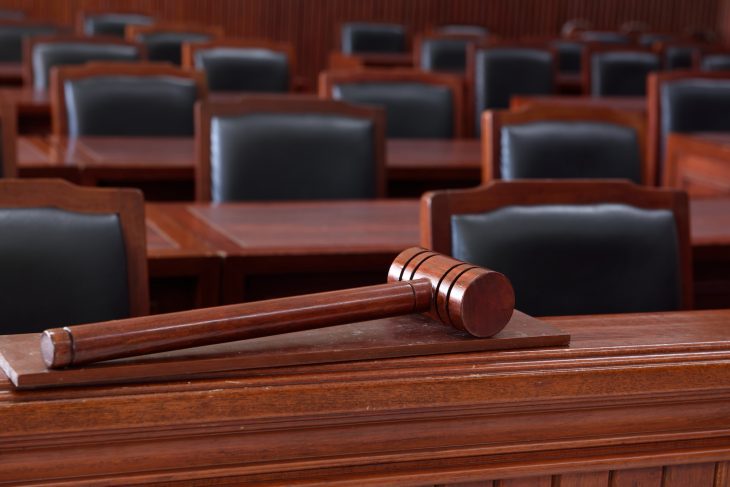
Picture this: a courtroom filled with anticipation as the judge weighs evidence, considers testimony, and analyzes facts. Within this intricate dance of justice lies the concept of adjudicative facts. In this article, we unravel the essence of adjudicative facts, examining their role in legal proceedings and understanding the factors that shape decision-making. Join us on this insightful journey as we explore the eleven fundamental elements that comprise the realm of adjudicative facts.
Definition and Scope
Adjudicative facts encompass the information that judges or juries rely on to make determinations in legal cases. These facts are distinct from legislative facts, which involve general societal knowledge. Adjudicative facts are specific to the case at hand and assist in resolving issues of dispute or controversy.
Relevance and Materiality
For an adjudicative fact to be considered, it must be relevant and material to the case. Relevance ensures the fact contributes to proving or disproving an element of the legal issue, while materiality ensures its significance in influencing the final decision.
Verifiability and Proof
Adjudicative facts must be capable of verification. They should be supported by evidence, such as witness testimony, documents, expert opinions, or physical exhibits. The burden of proof lies with the parties involved, who must convince the court of the facts’ validity.
Admissibility and Exclusion
Certain facts may be deemed inadmissible due to legal constraints, such as hearsay, privilege, or violation of constitutional rights. The judge carefully assesses the admissibility of facts to ensure a fair and just trial.
Competence and Sufficiency
Adjudicative facts should come from competent sources and be sufficient to establish the truth or falsity of a claim. Competence refers to the reliability of the source, while sufficiency implies that the fact alone or in combination with others can prove or disprove an assertion.
Judicial Notice
In some cases, the court may take judicial notice of adjudicative facts. This means the court recognizes certain facts as true without requiring formal proof, usually due to their common knowledge or well-established status.

Presumptions
Presumptions are inferences made by the court based on available evidence. They can help fill gaps in proof and assist in reaching a decision. Rebuttable presumptions allow parties to present evidence to counter the assumed fact, while irrebuttable presumptions cannot be challenged.
Burden of Persuasion
The burden of persuasion rests on the party making a claim or seeking relief. They must convince the court that their version of the facts is more likely to be true than not. The standard of proof varies depending on the type of case, ranging from the preponderance of evidence to beyond a reasonable doubt.
Fact-Finding Procedures
Fact-finding procedures involve the presentation and examination of evidence, including witness testimonies, documents, and expert reports. These procedures enable the court to determine the veracity of facts and make informed decisions.
Weight and Credibility
The court assigns weight to adjudicative facts based on their credibility and probative value. Factors such as witness credibility, corroboration, consistency, and reliability influence the weight assigned to each fact.
Judicial Discretion
Judges possess the discretion to determine which facts are more credible and should be considered in their decision-making process. They evaluate the relevance, sufficiency, and reliability of facts, ultimately shaping the outcome of the case.
Conclusion
Delve into the fascinating world of adjudicative facts, where the intricacies of the legal system come to light. By comprehending the significance of these eleven key elements, you gain a deeper understanding of the decision-making process in courts of law. Stay informed and let your knowledge empower you in the realm of legal proceedings.
Frequently Asked Questions (FAQs)
Are adjudicative facts the same as evidence?
While evidence contributes to the establishment of adjudicative facts, not all evidence qualifies as adjudicative facts. Adjudicative facts are specific information derived from evidence that directly impacts the resolution of a legal dispute.
Can adjudicative facts be based on personal opinions?
Adjudicative facts are generally based on objective and verifiable information rather than personal opinions. However, expert opinions, which are based on specialized knowledge, can sometimes be considered as adjudicative facts.
How do judges determine the weight of adjudicative facts?
Judges evaluate the credibility, reliability, and probative value of each adjudicative fact to assign it an appropriate weight. Factors like witness testimony, corroboration, consistency, and relevance play a crucial role in this assessment.
What happens if new adjudicative facts emerge after a trial?
If new adjudicative facts surface after the conclusion of a trial, parties may seek remedies such as filing appeals, motions for reconsideration, or reopening the case to present the new evidence before the court.
Are adjudicative facts subject to interpretation?
While adjudicative facts themselves are typically objective, the interpretation of those facts can vary. Different parties may present different arguments and perspectives based on the same set of facts, leading to debates and disputes.
Was this page helpful?
Our commitment to delivering trustworthy and engaging content is at the heart of what we do. Each fact on our site is contributed by real users like you, bringing a wealth of diverse insights and information. To ensure the highest standards of accuracy and reliability, our dedicated editors meticulously review each submission. This process guarantees that the facts we share are not only fascinating but also credible. Trust in our commitment to quality and authenticity as you explore and learn with us.
